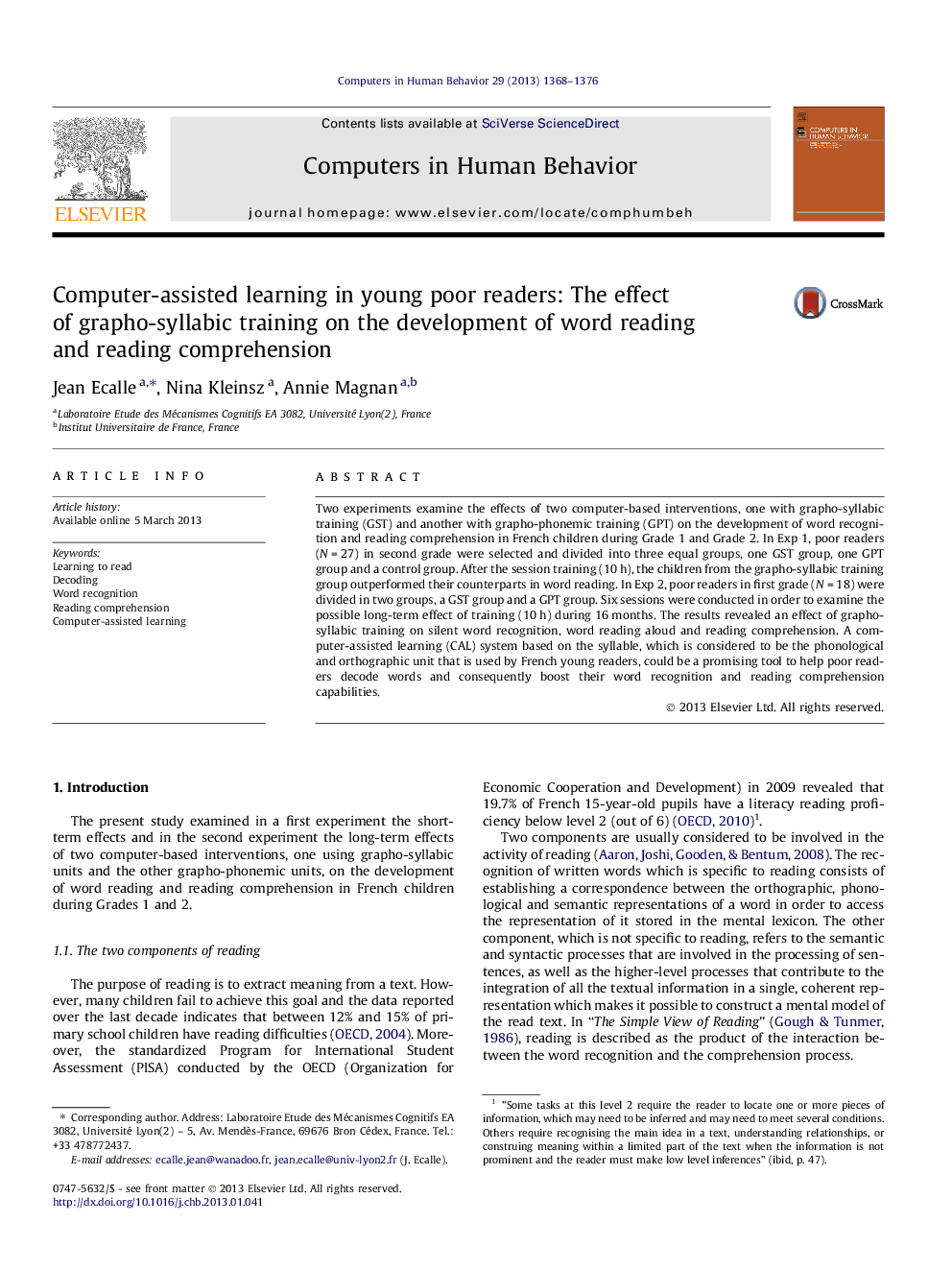| Article ID | Journal | Published Year | Pages | File Type |
|---|---|---|---|---|
| 351034 | Computers in Human Behavior | 2013 | 9 Pages |
Two experiments examine the effects of two computer-based interventions, one with grapho-syllabic training (GST) and another with grapho-phonemic training (GPT) on the development of word recognition and reading comprehension in French children during Grade 1 and Grade 2. In Exp 1, poor readers (N = 27) in second grade were selected and divided into three equal groups, one GST group, one GPT group and a control group. After the session training (10 h), the children from the grapho-syllabic training group outperformed their counterparts in word reading. In Exp 2, poor readers in first grade (N = 18) were divided in two groups, a GST group and a GPT group. Six sessions were conducted in order to examine the possible long-term effect of training (10 h) during 16 months. The results revealed an effect of grapho-syllabic training on silent word recognition, word reading aloud and reading comprehension. A computer-assisted learning (CAL) system based on the syllable, which is considered to be the phonological and orthographic unit that is used by French young readers, could be a promising tool to help poor readers decode words and consequently boost their word recognition and reading comprehension capabilities.
► Grapho-syllabic training (GST) was compared to grapho-phonemic training (GPT). ► GST is more effective in promoting word reading and reading comprehension in poor readers. ► GST reduces individual differences more than GPT. ► GST has a greater delayed effect than GPT.
